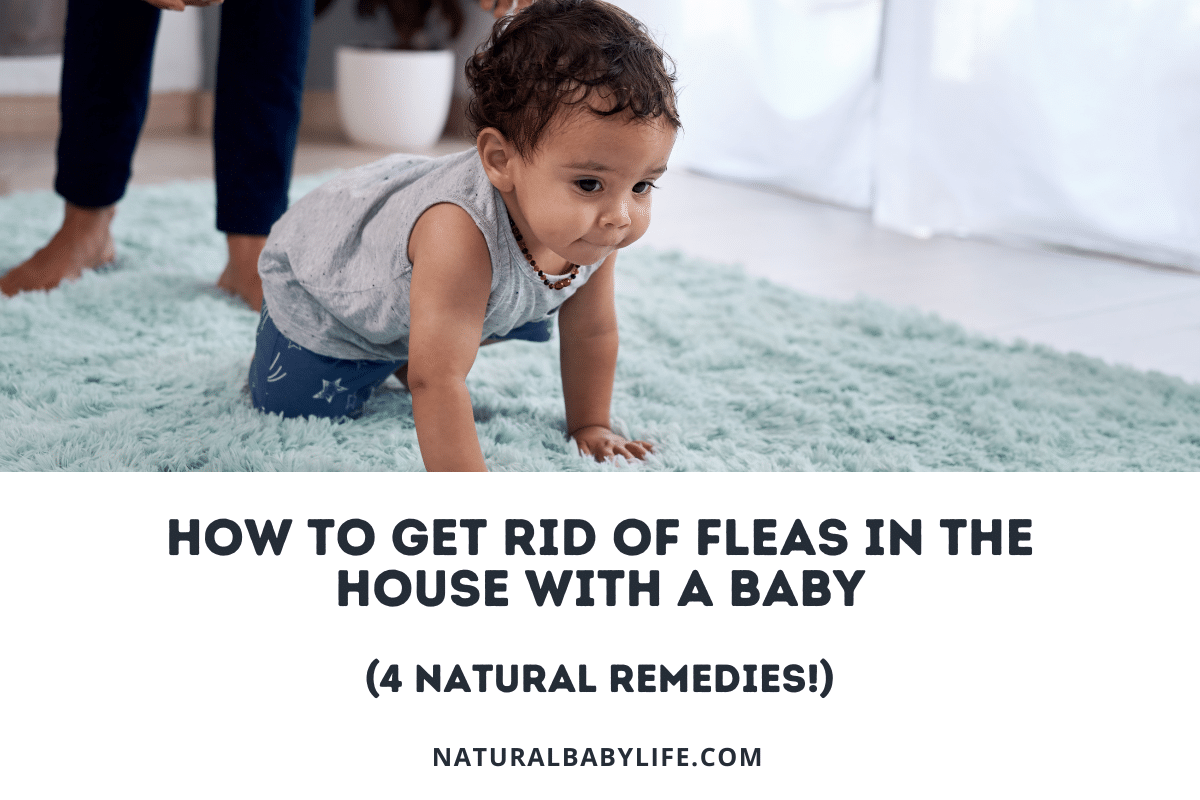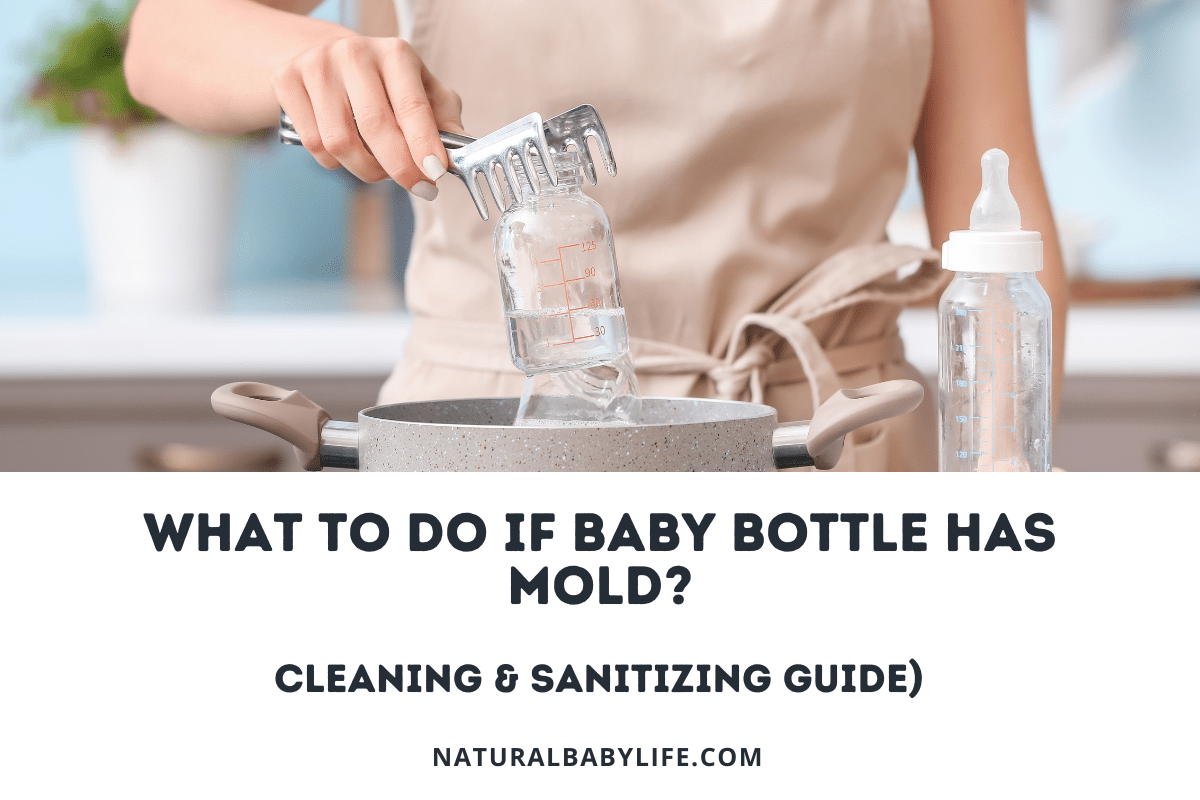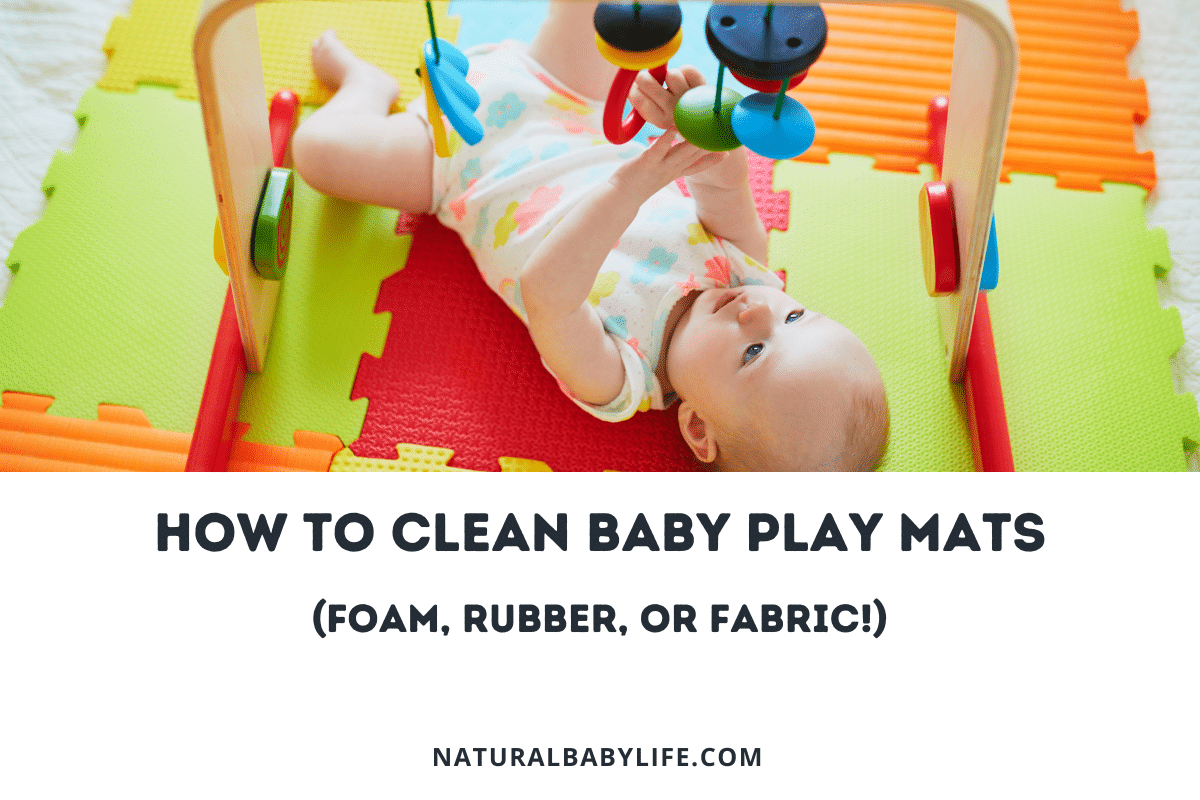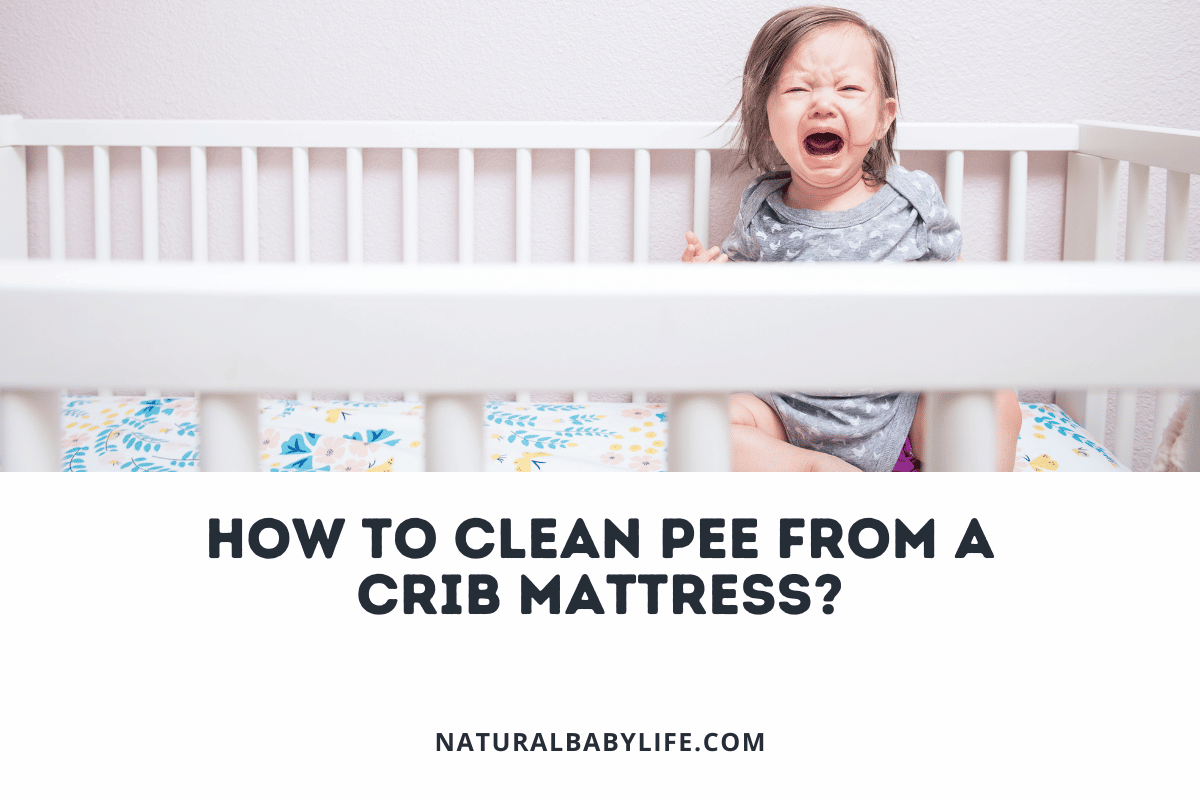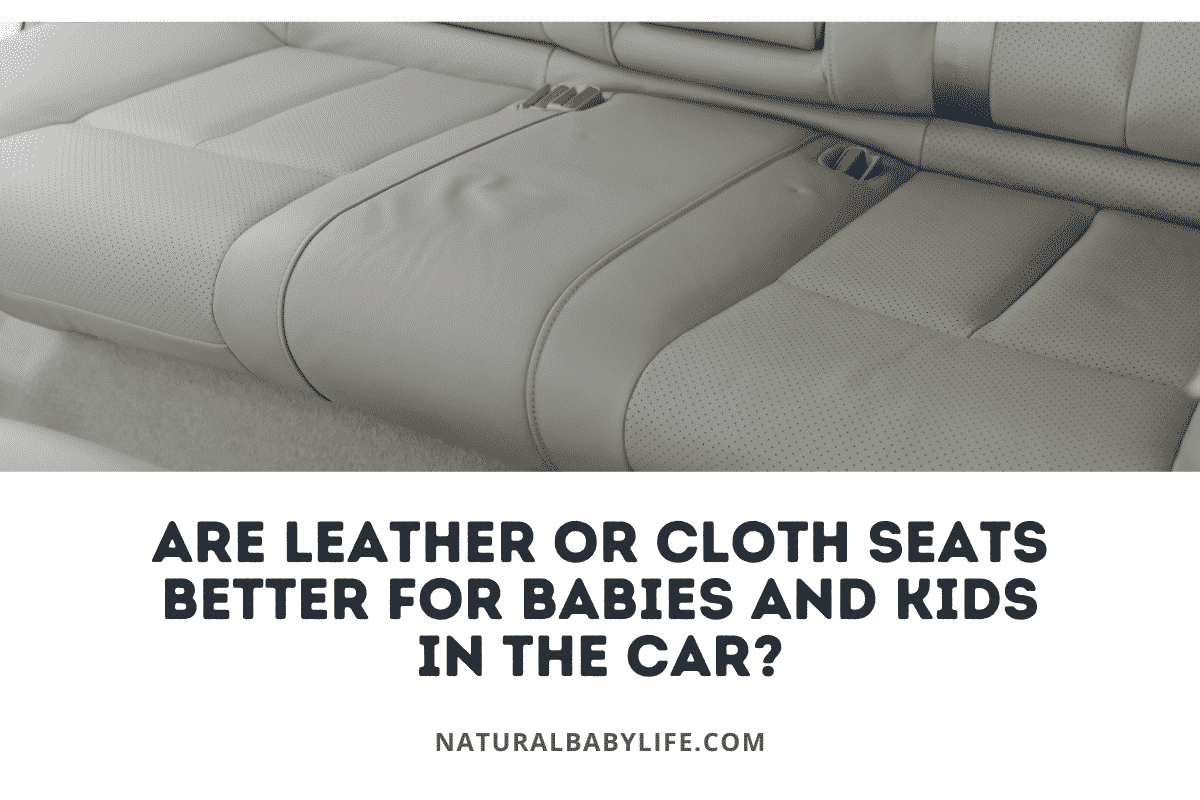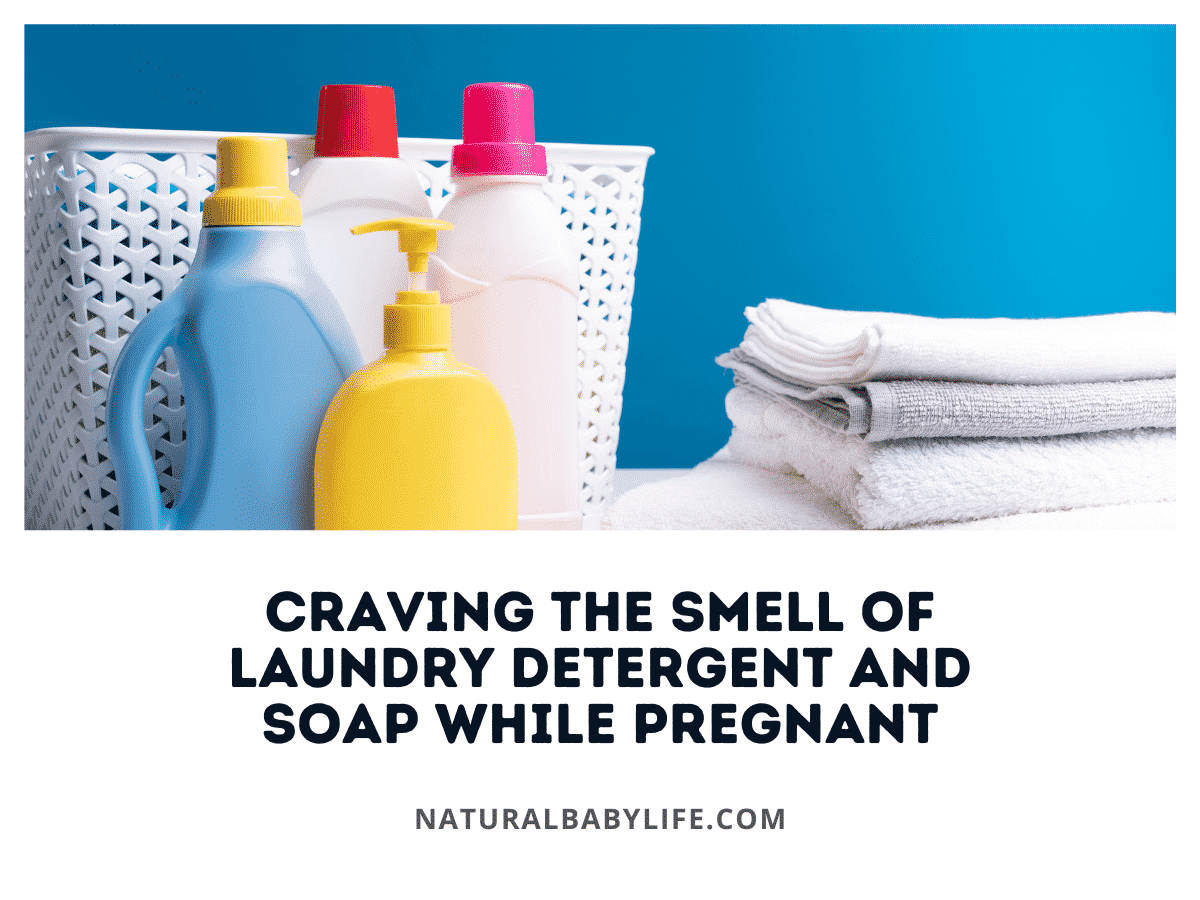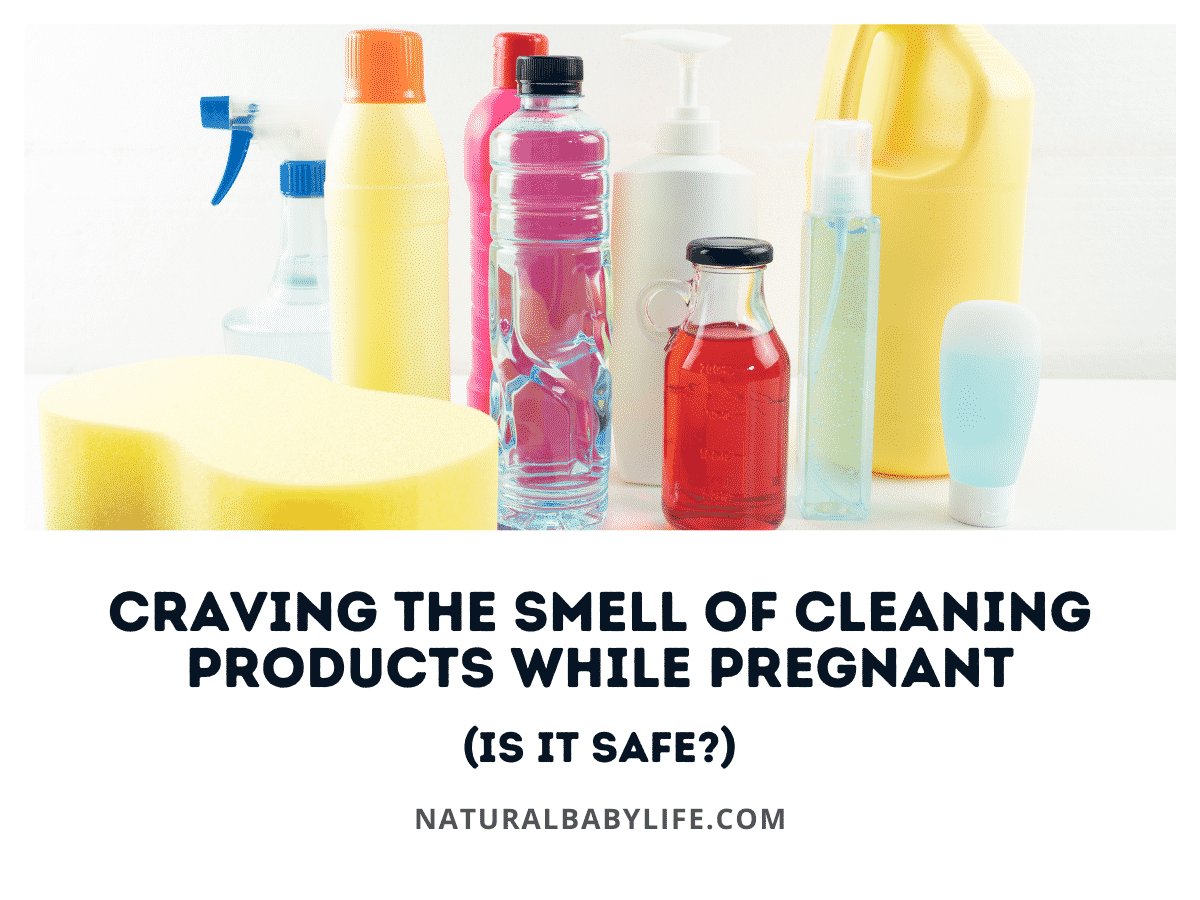No pest infestation is ever fun, but fleas can be incredibly difficult to get rid of, especially with a baby in the house. If you’ve ever wondered how to get rid of fleas in the house with a baby, you’re not alone!
The most common methods for flea removal in the house involve chemicals and pesticides that are potentially very harmful for babies. Common household soaps and ingredients can be used to make effective natural home remedies for removing fleas inside the house. Babies should sleep high off of the floor and wear long clothing whenever there is a risk for flea contact.
Getting rid of fleas without using harmful chemicals may seem overwhelming at first. If you need a safe solution for flea removal, this article will cover important information on avoiding fleas for your baby and home. Keep reading to find out the safest methods for removing fleas from your home.
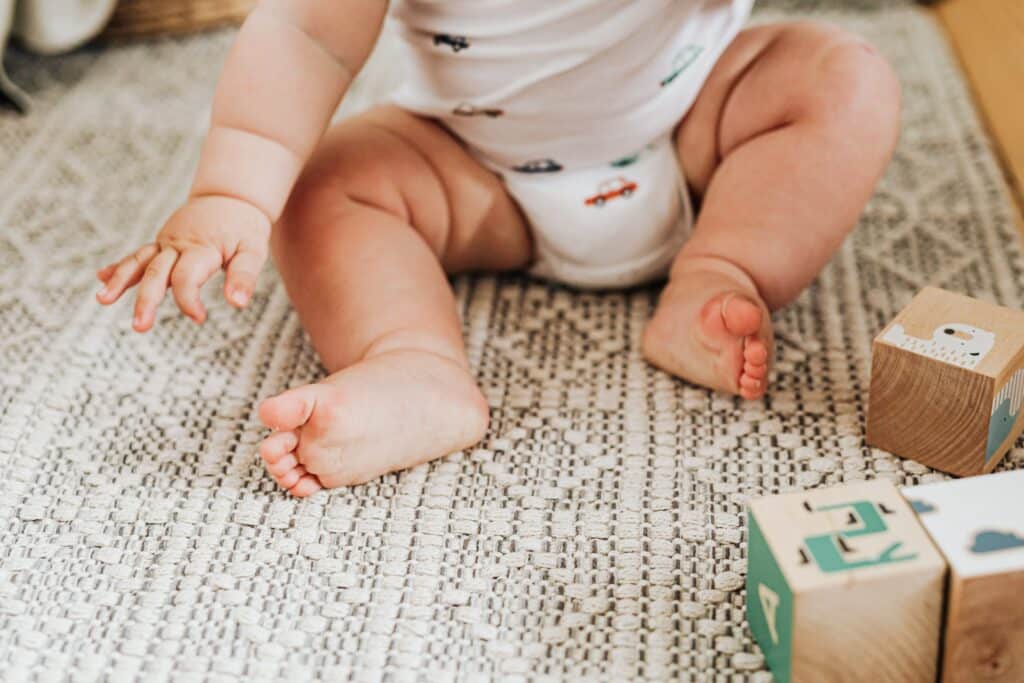
Table of Contents
How to get rid of fleas in the house with a baby
If you have dogs or cats, you may be used to dealing with fleas, although it can be concerning once you have a baby as well. Believe it or not, flea infestations can happen even if you don’t have pets. It’s easy for someone to pick up fleas in the yard or outside and bring them into the house, leading to an infestation.
No matter how the fleas got there, once they’re in the house with your baby, you know you need to get rid of them right away. Unfortunately, most of the common methods for getting rid of fleas aren’t exactly safe for your little one. So what do you do?
There are some natural remedies you can try to get rid of the fleas. These remedies use ingredients such as essential oils, baking soap, or dish soap, which are much safer for your children than the chemicals in most flea sprays or bombs. Let’s first take a look at how you can protect your baby from fleas while you’re looking for a solution.
How do I protect my baby from fleas?
The best thing to do to avoid your baby being bitten by fleas is to remove the fleas.
Unfortunately, this may sound like a ‘duh’ type statement, but it really is the truth of the matter. This is going to take diligence and repetitive cleaning. See the section below to learn more detailed information about cleaning for fleas.
In the meantime, keep long-sleeve onesies, pants, and socks on your newborn or infant to keep their skin covered. Most fleas are unable to jump high distances and they tend to stay off of furniture for this reason. Keeping your newborn in a bassinet or crib and away from the floor is another great method for avoiding flea bites.
Avoid sprays or treatments that are supposed to be applied directly to the skin. Instead, focus on removing the fleas and diligently follow-up with flea removal methods to keep your child away from fleas.
Can fleas be harmful to a baby?
Fleas are tiny bugs that are often hard to see. However, tiny red bites on legs, feet, and other body parts are usually a sign that you’re dealing with a flea infestation in your home.
Fleas are also incredibly resilient bugs which gives them their reputation as a pest that keeps coming back over and over again. You may be worried about what flea exposure means for your baby, but the research shows that there is very little to worry about with exposure to flea bites.
According to Healthline, most fleas pose very little risk for passing any kind of disease through their bite. However, if a baby gets a flea bite they are at risk of becoming infected much like any other open wound. This risk increases if the baby scratches at the bite causing it to bleed or spread.
For the most part, a flea bite is not considered a major health risk. However, they are extremely uncomfortable and will likely bother your little one. Of course, discomfort is something we parents definitely want to avoid at all costs for our children. Babies have enough to cry about already!
If you notice your child is uncomfortable because of the flea bites, you may want to call your pediatrician for advice while you work to get rid of the pests. Keep the bites washed with warm water and mild soap to prevent infection from germs on your child’s hands. Your pediatrician can recommend an appropriate topical treatment or over the counter medicine to keep your child comfortable in the event that they are bitten by fleas.
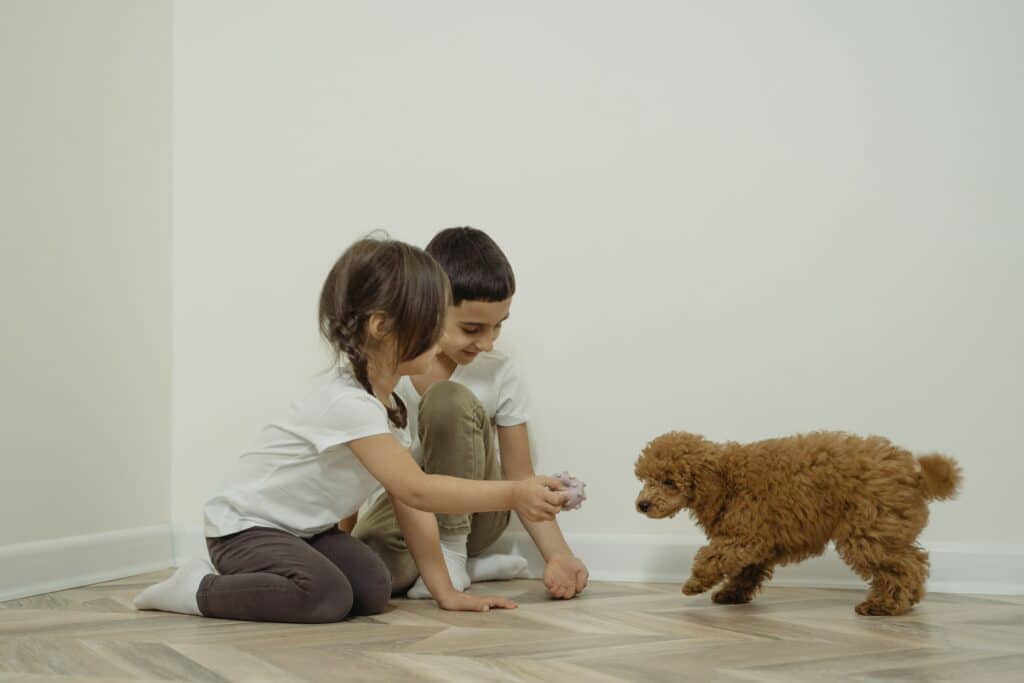
Can I spray for fleas with a baby in the house?
According to the National Resources Defense Council, flea sprays that are often used for dogs, cats, and even carpets are extremely dangerous for babies and young toddlers. The potent amount of harsh chemicals and pesticides contained in flea sprays is damaging to a baby’s lungs.
The NRDC argues that babies and toddlers who still have developing immune systems are particularly susceptible to these harmful pesticides. Additionally, these sprays are harsh and can cause respiratory distress in babies and young children. Especially since there are other, safer treatments available, flea sprays should be avoided at all costs.
Is it safe to flea bomb a house with a baby?
The answer to this question is no! Flea bombs are essentially super-concentrated versions of the flea sprays previously mentioned. There is a reason why flea bombs require the house be unattended for hours after the bomb has finished going off. While the air may technically be “safe,” everything in the house is now covered in pesticide residue.
Flea bombs are likely not safe for anyone, but they are most certainly not safe for a house that a baby is going to be exposed to. Once a house has been flea bombed, every stitch of clothing and every surface must be thoroughly cleaned to remove the pesticides in the house. Even if they were effective, there are easier and much safer methods for removing fleas from your home. For me, this would never be worth the trouble or potential danger.
This leads to the question, if you can’t use flea sprays or flea bombs, how do you get rid of fleas with a baby in the house? Thankfully, there are some natural methods that can work.
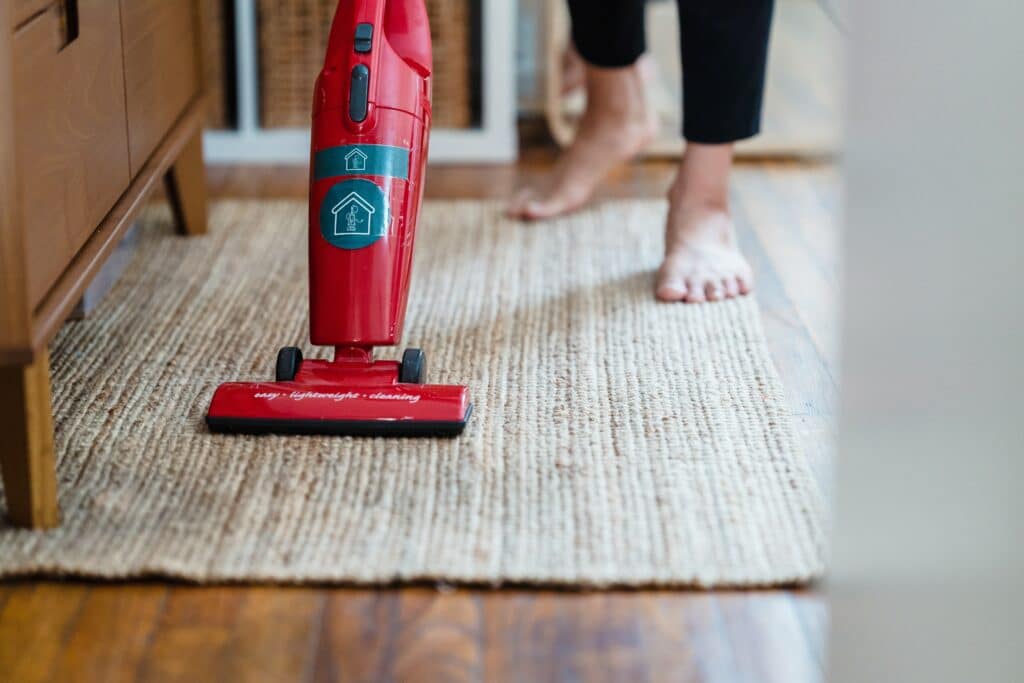
How to get rid of fleas naturally
There are a lot of natural methods for removing fleas from your home, but it is important to note that each of these methods is going to require persistence on your part to ensure that fleas are entirely removed from the home since we don’t have the benefit of harsh chemicals or pesticides to do the dirty work for us.
One major step that is necessary before any other steps is to vacuum all carpet in the home, sweep and mop all floors, and begin to wash all fabrics in hot water. The process of vacuuming, sweeping, and mopping should be repeated daily for up to two weeks. Like I mentioned before, fleas tend to stay on the ground because they can’t fly or jump very high. Those fleas will lay eggs and those eggs will hatch up to two weeks after the egg was laid, so you’ll need to outlast them.
Along with this advice, here are other things you should be doing alongside the vacuuming and mopping:
- Dish Soap Traps: Place a drop of dish soap in a cup and mix with about a cup of water. Place these mixtures on the floors of the rooms with the most fleas overnight. The solution will attract and trap fleas without any harmful chemical sprays.
- Homemade Spray: Create a spray with vinegar, water, lemon juice, and witch hazel. This spray is safe to spritz on carpets and fabrics. This mixture will also deter future flea infestations and can be spritzed in the yard to deter fleas as well.
- Baking Soda: Sprinkle baking soda over carpeted areas and fabric upholstered furniture. Use a large brush to brush the baking soda into the carpet. Last, use a vacuum to remove the baking soda from the carpet.
- Essential Oils: Mixing essential oils into your mop water is a great way to remove and deter fleas from your home. Cedar and lemongrass is an excellent combination that fleas do not like to smell. Fleas are also not fond of lavender. This can also be achieved by diffusing these smells from an oil diffuser, although removing the fleas will require more than oil diffusion because we want to get it down into the areas in which they live and breed, like the carpet.
If you want a great, all-natural spray that uses essential oils for its base then you can check out this one here. It is made from plant-based cedar-wood and lemongrass oil that is safe enough to be sprayed on dogs, cats, or anywhere around the home! It’s also biodegradable and made in the USA.
The best baby-safe flea treatment for the house
The most effective way to remove fleas from your home is simply to be diligent in your efforts to keep the floors vacuumed, swept and mopped. In addition to using either the homemade spray or a combination of essential oils, this is your best option for keeping fleas away from your home.
You also want to ensure that you deal with the source of the fleas. You can get fleas without a pet, but more times than not there is a pet involved in a flea infestation. Making sure your pet is treated for fleas is the best way to make sure that your home does not get infested with fleas.
Ask your vet about safe options for treating your dog or cat for fleas each month.
Home remedies for fleas that are safe for babies
All of the home remedies mentioned above are safe to use with babies in the home. Of course, you want to avoid spraying anything directly on your baby, but they are safe for the air around your baby.
Also, many of the methods mentioned above are best done when your baby is in another room, especially if your baby is mobile or crawling. For example, baking soda is safe for babies, but you still don’t want them playing around with a large amount of it.
Frequently Asked Questions (FAQS)
How do you treat fleas in your home with kids?
Getting rid of fleas is difficult without harmful chemicals, but flea sprays and bombs aren’t safe with little ones in the house. Treating fleas naturally involves diligently cleaning every area of your home and spraying the flea-infested areas with a natural spray.
How do I get rid of fleas in my kids bedroom?
Getting rid of fleas in your child’s bedroom should start with cleaning all bedding, fabrics, and anything else that could have fleas in it. You can use a homemade spray made with vinegar or essential oils, but it will involve some consistent cleaning to get rid of all the fleas.
How do I get rid of fleas in my house overnight?
Without using flea sprays or bombs, getting rid of fleas overnight isn’t usually possible. Fleas get into everything and it can take time to clean all of the carpets, bedding, clothes, and other areas that fleas get into.
Can fleas make my child sick?
It’s unlikely that fleas would make your child sick. Flea bites are usually safe, although they can be itchy and uncomfortable for your child. The biggest risk is usually your little one scratching the bites, which could potentially lead to an infection.
Conclusion
Fleas are certainly one of the most annoying pests to have in your home. Although they’re not usually dangerous for you or your children, they’re difficult to get rid of and can get into everything. The most common solution for fleas is to use flea sprays or bombs, but these aren’t safe for children.
If you need to know how to get rid of fleas in the house with a baby, consider some of these natural methods and start cleaning your home right away.

